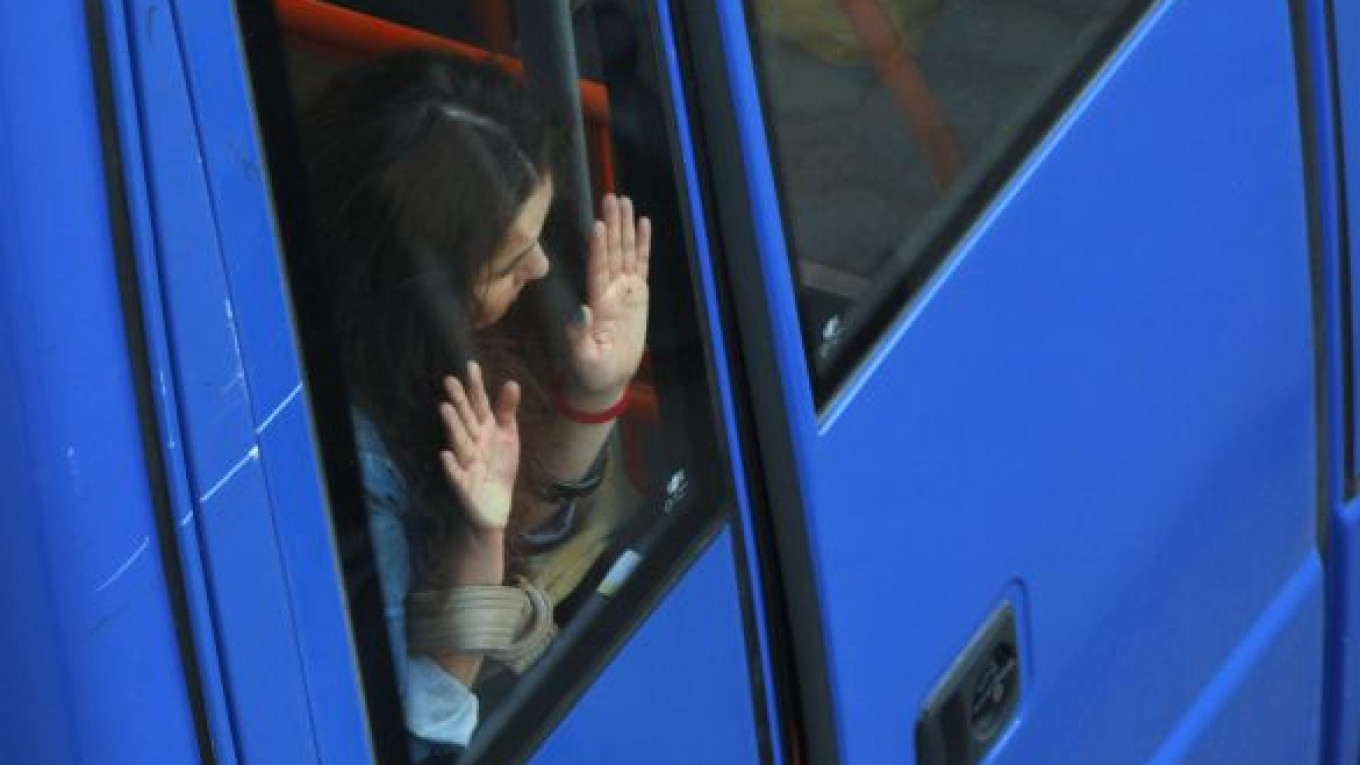MINSK — Online, they call for changes in Belarus. Offline, in front of riot police and sympathetic passers-by, they simply clap their hands and stomp their feet.
For a third Wednesday in a row, thousands of young social media activists chose the offline approach by holding banned rallies in cities and towns across their country.
Two previous rallies have been banned and dispersed, and many activists were interrogated ahead of the third one held in Minsk and other locations, said the respected human rights group Vyasna. Agents of the KGB, as Belarus' security agency is still known, detained more than 450 people in Minsk and many others in other towns and cities, Vyasna said, even though the youths did not shout protest slogans or display any banners.
Most of those detained were released a few hours after the Wednesday evening protest, but several dozen went on trial Thursday, said Valentin Stefanovich of the Vyasna rights center said. They face up to 15 days in jail on charges of hooliganism.
Belarus is undergoing a severe economic crisis, and longtime President Alexander Lukashenko has overseen a sweeping crackdown on opposition and government critics. Authorities routinely block opposition web sites using web filters similar to those used in China. Pro-democracy activists such as those protesting Wednesday routinely use Facebook, Twitter and other social networking web sites to support one another and their cause.
Sergei Pavliukevich, an activist whose postings have been followed by hundreds of thousands of Internet users, said he was briefly arrested by KGB agents Monday and released only after disclosing his passwords to social media web sites.
He said police removed his postings calling for protests against Lukashenko's policies, but he remains optimistic about the success such demonstrations can have, both online and offline.
"With the Internet, even these dictatorial authorities have a hard time shutting our mouths," Pavliukevich said in a telephone interview.
The government had warned that Wednesday's rallies were banned. Police also cordoned off streets in Minsk and shut down public transportation. But hundreds of youngsters gathered in small groups in the center of the city, some arriving on bicycles.
"I'm tired of fear," said Anton Volodkevich, a 19-year-old student with dreadlocks. "Even in a closed society one has to find a way to protest. We do it by clapping and stomping."
Minutes later, riot police started forcing him and others out of the street or throwing them into police vans.
Independent online media and bloggers in Belarus said that Wednesday's silent rallies took place in about 30 cities and towns across the nation of 10 million people.
For most of his 17 years in power, Lukashenko has relied on Russia to maintain a quasi-Soviet economy complete with a social safety net that helped maintain his popularity. But the Russian subsidies have dwindled recently as Moscow pushes for control over Belarus assets such as oil refineries and chemical plants in exchange for more loans. Many people have compared the crisis in Belarus to the economic shock that followed the 1991 Soviet collapse.
The Swedish Foreign Ministry on Thursday summoned the ambassador of Belarus to condemn the violence against demonstrators in the country after a Swedish Embassy official was assaulted by security police while observing Wednesday's gathering in Minsk.
Swedish Foreign Minister Carl Bildt said the violence is "yet another confirmation of the country's lack of respect for basic democratic rights."
The United States and the European Union have introduced additional sanctions against Belarus after Lukashenko unleashed a violent crackdown on the opposition after December's presidential vote that was also criticized by international observers.
A Message from The Moscow Times:
Dear readers,
We are facing unprecedented challenges. Russia's Prosecutor General's Office has designated The Moscow Times as an "undesirable" organization, criminalizing our work and putting our staff at risk of prosecution. This follows our earlier unjust labeling as a "foreign agent."
These actions are direct attempts to silence independent journalism in Russia. The authorities claim our work "discredits the decisions of the Russian leadership." We see things differently: we strive to provide accurate, unbiased reporting on Russia.
We, the journalists of The Moscow Times, refuse to be silenced. But to continue our work, we need your help.
Your support, no matter how small, makes a world of difference. If you can, please support us monthly starting from just $2. It's quick to set up, and every contribution makes a significant impact.
By supporting The Moscow Times, you're defending open, independent journalism in the face of repression. Thank you for standing with us.
Remind me later.






